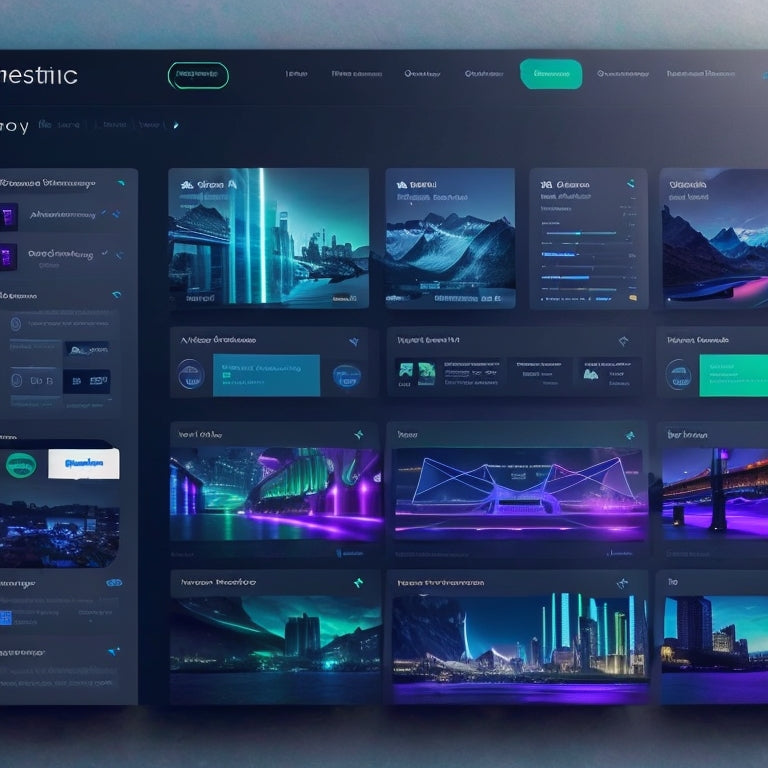
Does Shopify Use AI
Share
This article explores the topic of AI integration in Shopify. It aims to provide an objective and informative analysis of whether Shopify utilizes AI technology.
The article will discuss the potential benefits of incorporating AI into the Shopify platform, offer tips for integrating AI effectively, and provide helpful tutorials for users interested in AI implementation.
By examining the role of AI in Shopify, readers will gain a deeper understanding of its potential and how it can enhance their e-commerce experience.
- Shopify utilizes AI to enhance customer personalization, providing targeted marketing strategies and personalized recommendations based on customer data.
- AI is used by Shopify to streamline inventory management, minimizing stockouts and excess inventory, optimizing warehouse operations, and enabling efficient demand forecasting.
- Shopify leverages AI to improve sales forecasting, accurately predicting future sales trends and demand patterns, aligning production schedules with customer demand, and making data-driven decisions for better inventory management.
- AI is employed by Shopify to enable efficient order fulfillment, automating shipping, providing real-time tracking systems, and enhancing supply chain management processes for improved customer experience and satisfaction.
Benefits of AI in Shopify
This discussion focuses on the benefits of using AI in Shopify, specifically in relation to enhanced customer personalization, streamlined inventory management, improved sales forecasting, efficient order fulfillment, and enhanced fraud detection.
AI technologies in Shopify can analyze customer data and behavior to provide personalized recommendations and experiences, allowing businesses to better understand and cater to their customers' needs.
Additionally, AI can optimize inventory management by automatically tracking and predicting product demand, ensuring that businesses have the right products in stock at the right time.
Furthermore, AI-powered algorithms can analyze historical sales data and external factors to generate accurate sales forecasts, enabling businesses to make informed decisions and optimize their sales strategies.
Additionally, AI can streamline order fulfillment processes by automating tasks such as order processing, inventory allocation, and shipping, leading to faster and more efficient order fulfillment.
Lastly, AI can enhance fraud detection by analyzing data patterns and identifying potential fraudulent activities, helping businesses mitigate risks and protect their customers' financial information.
Enhanced Customer Personalization
Enhanced customer personalization in the context of Shopify involves the implementation of artificial intelligence techniques to provide tailored and personalized shopping experiences for customers.
One key aspect of this enhanced personalization is customer segmentation, which involves dividing the customer base into distinct groups based on common characteristics such as demographics, purchase history, and preferences. By segmenting customers, Shopify can gain insights into their individual needs and preferences, allowing for more targeted and personalized marketing strategies.
Another important aspect is the use of personalized recommendations. Through AI algorithms, Shopify can analyze customer data, including browsing and purchase history, to generate recommendations that are relevant to each individual customer. These recommendations can include personalized product suggestions, related items, or even discounts and promotions.
Streamlined Inventory Management
Streamlined inventory management involves implementing efficient processes and systems to effectively track and manage the available stock of products in an organized and optimized manner. This approach plays a crucial role in optimizing warehouse operations and ensuring a smooth supply chain.
By streamlining inventory management, businesses can minimize stockouts, reduce excess inventory, and improve overall operational efficiency. This is achieved through the implementation of various strategies such as demand forecasting, just-in-time inventory management, and automated stock replenishment systems.
Additionally, real-time inventory tracking and monitoring technologies enable businesses to make data-driven decisions, minimize errors, and improve accuracy in inventory management.
Improved Sales Forecasting
Improved sales forecasting involves the use of data analysis techniques and statistical models to predict future sales trends and demand patterns, allowing businesses to make informed decisions regarding inventory management and production planning.
By leveraging historical sales data, businesses can identify patterns and trends, enabling them to anticipate customer demand more accurately. This improved forecasting accuracy helps businesses optimize their inventory levels, reducing the risk of overstocking or stockouts.
Additionally, accurate demand prediction allows businesses to align their production schedules with customer demand, minimizing production costs and waste.
Advanced forecasting methods, such as time series analysis and regression analysis, can further enhance the accuracy of sales forecasts by considering various factors that may influence sales, such as seasonality, promotions, and market trends.
Overall, improved sales forecasting empowers businesses to make data-driven decisions, leading to better inventory management and increased customer satisfaction.
Efficient Order Fulfillment
Efficient order fulfillment is a critical aspect of business operations, ensuring that customer orders are processed and delivered in a timely manner.
In today's fast-paced world, customers expect quick and accurate delivery of their purchases. To meet these demands, many businesses are turning to automated shipping and real-time tracking systems.
Automated shipping allows for streamlined order processing, reducing manual errors and increasing efficiency. Real-time tracking provides customers with up-to-date information on the status and location of their orders, enhancing transparency and trust.
These technologies not only improve the overall customer experience but also enable businesses to optimize their supply chain management processes. By automating shipping and implementing real-time tracking systems, companies can achieve faster order fulfillment, reduce costs, and ultimately enhance customer satisfaction.
Enhanced Fraud Detection
Transitioning from efficient order fulfillment, another area where Shopify utilizes AI technology is in the realm of enhanced fraud detection.
With the increasing prevalence of online transactions, protecting merchants and customers from fraudulent activities is of paramount importance. Shopify employs a range of fraud prevention techniques that leverage AI algorithms to identify and mitigate potential risks.
These algorithms analyze various data points, such as customer behavior, transaction patterns, and device information, to detect suspicious activities and flag them for further investigation. By continuously learning from patterns and trends, AI algorithms can adapt and improve their fraud detection capabilities over time.
This not only helps in reducing financial losses but also enhances the overall trust and safety within the Shopify ecosystem, fostering a sense of security and belonging for its users.
Shopify Tips for AI Integration
This discussion focuses on the benefits of integrating AI into Shopify. Businesses can gain insight into how AI can improve their operations and efficiency.
The AI tools available for Shopify are explored. Understanding these tools can help businesses make informed decisions on which tools to implement to meet their specific needs.
The potential for enhancing the customer experience through AI integration is discussed. AI can provide personalized recommendations, improve search results, and streamline the purchasing process.
Lastly, the future of AI in ecommerce is examined. The potential for further advancements and innovations in this rapidly evolving field is highlighted.
Benefits of AI Integration
One potential advantage of integrating AI into Shopify is the ability to automate repetitive tasks, such as inventory management and customer support, which can improve operational efficiency and reduce costs.
AI-powered automation can streamline the inventory management process by automatically updating stock levels, generating purchase orders, and predicting demand patterns. This not only saves time but also ensures that products are always available for customers, enhancing their shopping experience.
Additionally, AI-driven marketing strategies can significantly improve customer targeting and personalization. By analyzing customer data, AI algorithms can identify patterns and preferences, allowing businesses to deliver tailored marketing campaigns and product recommendations. This can lead to higher customer satisfaction and increased sales.
Overall, integrating AI into Shopify offers the potential to optimize operations and enhance marketing efforts, ultimately benefiting businesses and their customers.
AI Tools for Shopify
The integration of AI tools in Shopify has brought significant benefits to businesses.
One such tool is AI-powered recommendations, which leverages machine learning algorithms to provide personalized product recommendations to customers. These recommendations are based on the analysis of customer behavior, purchase history, and preferences. By tailoring suggestions to individual customers, businesses can enhance the shopping experience and increase customer satisfaction.
Additionally, AI chatbot integration has become increasingly popular in Shopify. Chatbots use natural language processing and machine learning to interact with customers, answer their queries, and provide support. This integration not only improves customer service but also helps automate tasks, reduces response times, and frees up human resources for more complex issues.
Overall, AI tools in Shopify offer valuable features that enhance customer engagement and streamline business operations.
Enhancing Customer Experience
To enhance the customer experience, businesses can utilize AI-powered recommendations and chatbot integration in their Shopify platform.
AI-driven recommendations use machine learning algorithms to analyze customer data and provide personalized product suggestions. These recommendations take into account various factors such as browsing history, purchase history, and customer feedback. By leveraging AI technology, businesses can create a more tailored and engaging shopping experience for their customers.
Chatbot integration further enhances the customer experience by providing instant and automated customer support. Customers can receive real-time assistance, guidance, and answers to their queries, improving their overall satisfaction and reducing response time.
Future of AI in Ecommerce
AI technology is revolutionizing various aspects of the ecommerce industry, including marketing and customer service.
AI in marketing enables businesses to analyze vast amounts of customer data to personalize marketing campaigns and provide targeted recommendations. By using AI algorithms, businesses can identify customer preferences, predict future buying behaviors, and optimize marketing strategies accordingly. This enables companies to deliver personalized advertisements and offers to individual customers, enhancing their overall shopping experience and increasing sales.
Additionally, AI in customer service allows businesses to automate routine tasks such as answering frequently asked questions and providing instant support through chatbots. These AI-powered chatbots are capable of understanding and responding to customer queries in a timely manner, improving customer satisfaction and reducing response times.
Overall, the future of AI in ecommerce holds significant potential for enhancing marketing effectiveness and improving customer service experiences.
Helpful Tutorials for AI Integration
One way to enhance the integration of AI in Shopify is through the utilization of helpful tutorials.
AI integration in Shopify can pose several challenges, such as the complexity of the technology and the need for proper implementation strategies.
Tutorials play a crucial role in addressing these challenges by providing step-by-step instructions and guidance on how to effectively integrate AI into the Shopify platform.
These tutorials typically cover a wide range of topics, including AI implementation strategies, best practices, and troubleshooting tips.
By following these tutorials, Shopify users can acquire the necessary knowledge and skills to successfully incorporate AI into their online stores.
This not only improves the overall functionality and efficiency of the platform but also empowers users to leverage the benefits of AI technology in their ecommerce businesses.
Learn More About AI Integration in Shopify
A deeper understanding of the process of integrating artificial intelligence into the Shopify platform can be obtained by exploring further resources and educational materials available.
AI-powered chatbots and recommendation algorithms are two key aspects of AI integration in Shopify. AI-powered chatbots utilize natural language processing and machine learning algorithms to provide customers with personalized and efficient support. These chatbots can handle customer inquiries, provide product recommendations, and assist in completing transactions.
On the other hand, recommendation algorithms analyze customer data and behavior to suggest relevant products or services. By utilizing AI, Shopify can enhance the user experience, increase customer engagement, and improve sales conversion rates.
Further exploration of resources and educational materials on AI integration in Shopify can provide valuable insights and guidance for businesses looking to leverage AI technologies to optimize their e-commerce operations.
Frequently Asked Questions
How Does AI Integration in Shopify Impact the Customer Shopping Experience?
The integration of AI in Shopify has a significant impact on the customer shopping experience. It enables personalized recommendations, enhancing the customer's ability to discover relevant products and ultimately improving their overall satisfaction with the platform.
Can AI in Shopify Help With Inventory Management and Forecasting?
The integration of AI in Shopify can potentially aid in inventory management and demand forecasting. By leveraging AI algorithms, Shopify could optimize inventory levels and predict future demand, enhancing operational efficiency and customer satisfaction.
Are There Any Limitations or Challenges to Consider When Integrating AI Into Shopify?
When integrating AI into Shopify, there are various limitations and challenges to consider. These include the complexity of AI implementation, potential biases in AI algorithms, data privacy concerns, and the need for continuous monitoring and optimization of AI systems.
What Are Some Examples of Successful Businesses That Have Implemented AI in Their Shopify Stores?
Successful businesses that have implemented AI in their Shopify stores have seen various benefits. For instance, AI-powered chatbots have enhanced customer service, personalized product recommendations have increased sales, and automated inventory management has improved operational efficiency.
How Can Shopify Merchants Ensure the Privacy and Security of Customer Data When Using AI Technologies?
Privacy concerns and data protection are paramount for Shopify merchants when utilizing AI technologies. Implementing robust encryption methods, regular security audits, and obtaining customer consent are effective measures to ensure the privacy and security of customer data.
Related Posts
-
Stay Ahead Of Retail Industry News Tomorrow
In today's rapidly evolving retail industry, staying ahead of industry news is crucial for professionals seeking to r...
-

How Do I Increase Sales on Shopify Mobile App
The Shopify mobile app has become an essential tool for businesses seeking to optimize their sales strategies. This ...
-

Maximizing Pinterest for Business Success
Pinterest has emerged as a valuable platform for businesses seeking to enhance their success. Boasting a substantial...

